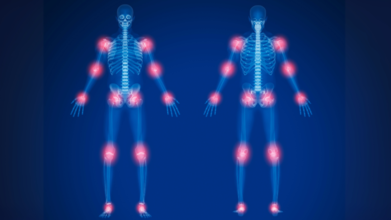- Health Conditions A-Z
- Health & Wellness
- Nutrition
- Fitness
- Health News
- Ayurveda
- Videos
- Medicine A-Z
- Parenting
- Web Stories
Brain Rot: How Does The Word Of The Year Impact Our Mental Health?

How does the word of the year impact mental health?
This year's word of the year announced by Oxford University Press (OUP) is 'brain rot'. The selection was done on the basis of public votes from a shortlist of six words compiled by Oxford University.
What does it mean?
As per OUP, 'brain rot' is defined as "the supposed deterioration of a person’s mental or intellectual state, especially viewed as the result of overconsumption of material (now particularly online content) considered to be trivial or unchallenging. Also: something characterized as likely to lead to such deterioration”.
The first time this word was used in an 1854 book by Henry David, called Walden, which described the experiences of living a simple lifestyle in the natural world.
Does it have real health implications?
Well, we have al experiences zoning out and feeling foggy, a little sleepy and out of context during a conversation. It is hard to focus and we feel anxious, agitated and negative. This is what brain rot feels like.
These feelings stay even when we get enough rest. This is because our days pass by spending endless hours in front of hour phones or computer screens, causing a digital information overload. The result is brain rot, adding further to mental pressure.
For those who think brain rot is not a real phenomenon would be sad to know that it is. It is the state of this mental fogginess and cognitive decline that results from excessive screen engagement.
What causes it?
This happens due to excessive technology use, mindless scrolling and continuous surfing the Internet, texting, or checking your email, without actually having to do anything with it. It almost becomes your hobby.
Video Gaming: Would you believe it if we told you that there actually exists gaming disorder? This is when someone becomes too addicted to gaming and plays compulsively. The person becomes entranced by video games' alternate worlds, fancy characters, and complicated plots, often comparing them with their own world and thus having difficulty in real life. The person, during real-life situations, may zone out in the fantasy of the video game world.
Zombie Scrolling: This refers to mindless scrolling with no destination in mind. This makes you stare at your smartphone, without having anything in your mind. This could often be translated even when you are not on your phone, staring at nothingness, often leading to brain rot.
Doom scrolling: It involves searching for distressing information and negative news. Doom scrollers feel an overwhelming urge to be up to date on the latest information, especially when it is disturbing.
Social Media Addiction: It is the persistent urge to check social media, and your notifications, and a feeling of restlessness when you do not check it.
How does it affect you?
While on the surface, it may seem like a harmless activity, but it can damage your mental well-being. Such activities affect brain's reward system, because when you prioritize and remember negative information, such as in doom scrolling, you tend to look out for that even when not on your phone. It further could lead to a chain of negative news, once you land on one, you can just enter a rabbit hole of negative news.
A 2022 study published in Springer Nature titled Doomscrolling Scale: its Association with Personality Traits, Psychological Distress, Social Media Use, and Wellbeing, showed that doom scrolling could lead to higher levels of psychological disorder and lower levels of mental well-being.
Another 2022 study published in Taylor & Francis by Bryan Mclaughlin showed that people who have high levels of negative news consumption also have poorer mental and physical health.
A 2019 study titled The "online brain": how the Internet may be changing our cognition, showed that the Internet can also produce acute and sustained alterations in cognition related to attention and memory. This can also affect the brain's grey matter.
Another 2023 study on the Effects of Social Media Addiction, published in the Journal of Psychology Research and Behavior Management analyzed 1051 young adults between 18 and 27 and found that social media addiction could ruin your planning, organization, problem-solving, decision-making and working memory capabilities.
These habits could also lead to a decline in self-worth, and heightened levels of stress, anxiety, and depression.
Is Sleeping Naked A Weird Habit Or Science-Backed Health Hack?

Credits: Canva and IMDb
You know Joey from the series sleeps without clothes on. Have you ever thought about it? Maybe you have, but you have been too shy to give it a try. Maybe Joey was not joking, maybe sleeping without clothes on do have some benefits.
While sleeping naked at night may not be the first thing that comes to your mind, however, it has benefits, which can surprise you.
Sleeping Naked Means Sleeping Faster
Behavioral sleep disorders specialist Michelle Drerup, PsyD, DBSM, tells Cleveland Clinic that your body naturally works to lowers its temperature or thermostat to doze off at night. This happens through circadian rhythm that regulates your body's wake and sleep cycles. So, the faster you cool off, the faster you will sleep.
Sleeping without clothes might as well help you in that.
Your bedroom temperature should be between 60 degrees Fahrenheit and 67 degrees Fahrenheit (15.5 degrees Celsius to 19.44 degrees Celsius) for optimal snoozing, not some experts.
ALSO READ: Oxford University Scientists Have Found The Reason Behind The Need To Sleep
Better Sleep
As per a 2012 study published in the Journal of Physiological Anthropology, when your body is cooled down, it also helps you sleep better. The quality of sleep significantly improves. Thus, sleeping naked is one of the many ways to achieve the desired temperature.
Good For Skin And Hygiene
A 2017 study published in journal Women's Health, titled Role of female intimate hygiene in vulvovaginal health: Global hygiene practices and product usage, cited the Royal College of General Practitioners guide on care of vulvar skin, and noted that sleeping without underwear allows better airflow, reduces moistures and prevents any potential yeast or bacterial infections.
ALSO READ: Do Feminine Hygiene Products Actually Cause Vaginal Infection?
Intimate skin is prone to have moisture trapped, and removing clothes can help your skin breathe. Since studies have proven that a lower body temperature allows you to have a better sleep quality, further studies, including a 2018 published in Journal of Applied Physiology notes that "adequate sleep" can also help you skin heal from small wound.
Improves Relationship
As per a 2015 study published in the Frontiers in Psychology, skin-to-skin contact between adults stimulates the release of oxytocin, which can play an important role in building attachments, and enhance the feeling of safety. It also thus help you sleep better as you feel less stressed and more in connect with your partner.
Great For Your Self Esteem
A 2021 study published in Journal of Sex Research found that times spent naked helps build body appreciation. This also helps one embrace themselves and self-love. Thus going to sleep naked extends the time you spend naked, and helps you boost your self esteem.
Helpful For Male Fertility
A 2018 study published in the journal of Human Reproduction also noted that sleeping naked is a good way to keep testicles cool and maintain an optimal temperature for sperm health.
The study of 656 men suggested a link between men who wore tight underwear with a low sperm count. The breezier the underwear was, the higher sperm concentration and total sperm count was in the men.
6 Scary Symptoms ER Doctors Say You Should Never Brush Off

Credits: Canva
We have all been there, done that. Reaching out to Google every time we face slight discomfort sneezing, convinced that we have some serious disease. While not every ache or tickle means an emergency, some symptoms really do need urgent attention. According to ER doctors, there are a handful of red flags you should never brush off.
Here are six warning signs you should pay attention to immediately.
1. Chest Pain That Feels Super Heavy
We have all had heartburn after a cheesy pizza, but chest pain is not something to gamble with. Reports say crushing, pressure-like chest pain that radiates to your arm, jaw, or back is a huge red flag for a heart attack. Sometimes it comes with sweating, shortness of breath, or nausea. Even if you are young and otherwise healthy, do not assume it is just gas or stress. When in doubt, get checked out; it is always better to be told it is heartburn than to ignore a heart attack.
2. The Worst Headache of Your Life
Sure, headaches are common, but if you suddenly feel like someone is hammering your skull with no mercy, do not tough it out. According to the reports, a sudden, severe headache, especially if it is different from your usual migraines, could signal a brain aneurysm, bleeding, or other neurological emergency. Pair that with vision changes, weakness, or slurred speech, and you should be calling for help immediately.
3. Unexplained Shortness of Breath
Running up the stairs and wheezing like a deflating balloon is one thing. But struggling to breathe at rest or without any exertion? That is a whole different story. Experts say unexplained shortness of breath could point to conditions like blood clots in the lungs, asthma attacks, pneumonia, or even heart problems. If your chest feels tight, you are gasping for air, or your lips are turning blue, it is not something to “walk off”.
4. Sudden Weakness or Numbness in One Side of the Body
If you are holding something, and suddenly it slips right out of your hand because your arm has no feeling. Or half your face feels like it is melting. These are classic stroke symptoms, and ER doctors stress that time is everything. The quicker you get treatment, the higher the chances of recovery. Remember the acronym FAST: Face drooping, Arm weakness, Speech difficulty, Time to call emergency services. Do not wait it out hoping it will pass.
5. Uncontrolled Bleeding
A paper cut? No big deal. A deep cut that refuses to stop bleeding after 10 minutes of firm pressure? That is a medical emergency. According to the reports, that uncontrolled bleeding can mean a damaged artery or an underlying clotting disorder. If you are soaking through bandages or the blood will not stop, it is not something to ignore. Plus, losing too much blood too quickly can lead to shock and nobody wants to faint in their bathroom.
6. Severe Abdominal Pain That Comes Out of Nowhere
Stomach aches are often brushed off as bad food choices. But if you suddenly develop intense abdominal pain that does not go away, reports suggest it could be something much more serious, like appendicitis, gallstones, a perforated ulcer, or even an intestinal blockage. The kind of pain where you cannot stand up straight or move without wincing is not the “sleep it off” kind. Trust your gut, literally, and get checked.
Listen to Your Body’s Alarm Bells
Not every symptom is an emergency, but when your body loses it, it is trying to tell you something. ER doctors agree that ignoring these signs can lead to complications that are far harder to treat later.Japanese Scientists Discover Hidden Immune 'Hubs' That Could Cause Arthritis-Related Joint Damage

Credits: Canva
A team of researchers from Kyoto University, Japan, has uncovered hidden immune “hubs” that appear to play a critical role in driving joint damage in patients with rheumatoid arthritis (RA).
The breakthrough, published in Science Immunology, sheds light on why inflammation persists in many patients despite existing treatments and may pave the way for new therapies.
Understanding Rheumatoid Arthritis
Rheumatoid arthritis is an autoimmune disease that affects millions worldwide, causing painful swelling, stiffness, and damage in the joints. It occurs when the body’s immune system mistakenly attacks its own tissues.
While medications such as disease-modifying anti-rheumatic drugs (DMARDs) and biologics have improved outcomes, nearly one in three patients continues to respond poorly to current therapies. This new study provides an explanation for that treatment resistance.
Discovery of Immune Hubs
The Japanese team focused on a subset of immune cells known as peripheral helper T cells (Tph cells). Researchers discovered that Tph cells exist in two distinct forms: stem-like Tph cells and effector Tph cells.
The stem-like Tph cells were found residing inside small immune hubs known as tertiary lymphoid structures within inflamed joints. Inside these hubs, the stem-like cells multiply and activate B cells, which are responsible for producing antibodies.
Some of these stem-like Tph cells eventually mature into effector Tph cells, which leave the hubs and contribute directly to joint inflammation by interacting with other immune cells such as macrophages and killer T cells. This continuous supply of effector cells could be the reason inflammation continues in patients even after treatment.
A New Therapeutic Target
By pinpointing the root of the problem, the scientists believe treatment strategies could shift toward targeting these stem-like Tph cells.
“Because stem-like Tph cells can both self-renew and differentiate, they may represent a root cause of the disease,” said lead researcher Yuki Masuo of Kyoto University. Neutralizing or limiting the activity of these cells at their source could potentially reduce the cycle of inflammation and slow down joint damage.
Advanced Techniques Revealed the Mechanism
The team reached these findings using a cutting-edge approach called multi-omics, which combines multiple layers of biological data.
By analyzing immune cells from both inflamed joint tissues and blood samples of RA patients, they created a comprehensive picture of how Tph cells behave. The results showed that stem-like Tph cells predominantly live inside immune hubs where they maintain close contact with B cells.
To confirm their theory, researchers recreated the environment in the lab by growing stem-like Tph cells and B cells together. They found that this interaction not only helped Tph cells transform into effector cells but also activated B cells, further fueling the immune response.
Why This Matters
The study marks an important step in understanding why rheumatoid arthritis is so difficult to treat in some patients. By revealing the role of immune hubs, it provides a more detailed map of how chronic inflammation is sustained in joints. For patients who struggle with current medications, these insights could one day translate into therapies that are more precise and effective.
© 2024 Bennett, Coleman & Company Limited

